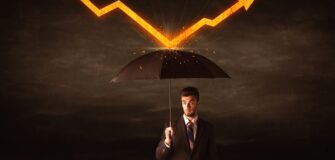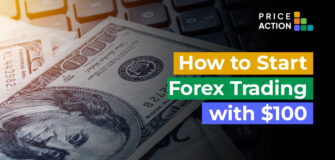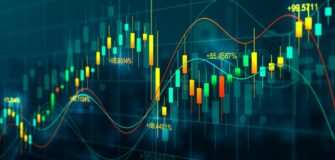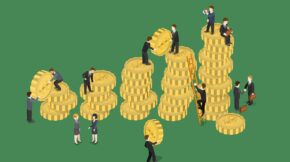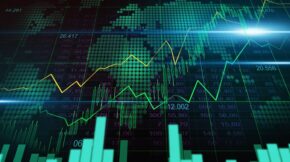Why Do Forex Traders Fail?
Share
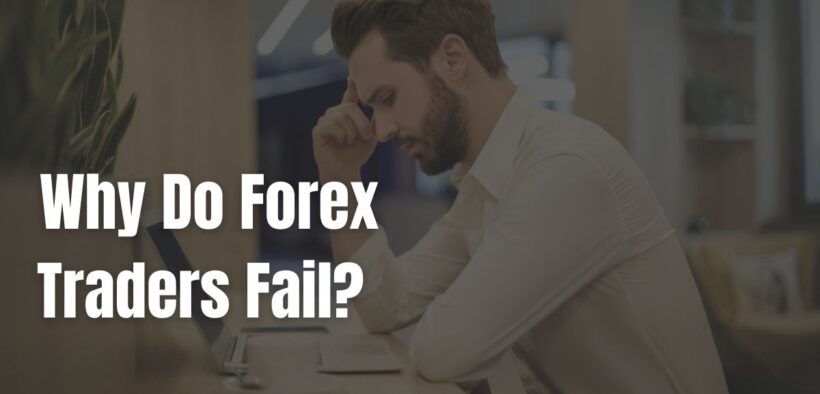
With more than $6 trillion in daily trade, Forex is the world’s largest financial trading market. Even though the market is known as the “gateway to success,” the majority of people do not succeed. The majority of traders that fail do so for the same reasons. Extreme market leverage, the use of borrowed cash to maximize investment returns, and the relatively small amounts of margin required when trading currencies all prevent traders from making low-risk mistakes repeatedly.
In this article, we’ll be going over the most common reasons why the majority of forex traders fail.
Trading Factors
Many trading factors can prevent a trader from achieving their investment goals. We’ve compiled a list of some of the most common trading factors that can lead to a trader’s downfall.
Trading Discipline
The biggest mistake a trader can make is to let his or her emotions control trading decisions. A successful trader in forex would make big wins with small losses. But when someone makes a consecutive loss, it gets difficult to control emotion and that’s when the trader’s patience and confidence get tested. Attempting to beat the market or surrendering to fear and greed can result in winnings being cut short and losing trades getting out of control. Trading inside a well-constructed trading plan that helps in sustaining trading discipline is a step to overcoming emotion.
Trading Without a Plan
Whether trading forex or any other asset class, the first step to success is to develop and stick to a trading strategy. The saying “failing to plan is preparing to fail” applies to all types of trade. A successful trader follows a well-documented strategy that incorporates risk management guidelines and a projected return on investment (ROI). Investors who stick to a strategic trading plan can avoid some of the most typical trading errors; if they don’t, they’re selling themselves short in terms of what they can achieve in the forex market.
Failure in Market Adaptation
You should make a plan for each trade before the market begins. Scenario analysis and planning moves and countermoves for every possible market situation can greatly lessen the chance of substantial, unexpected losses. As the market evolves, new opportunities and risks emerge. No one-size-fits-all solution or infallible “system” can win in the long run. The most successful traders are those who can respond to market developments and change their methods accordingly. Low-probability events are anticipated by successful traders, and they are rarely startled when they occur. They stay ahead of the rest by educating and adjusting to the new market, and they continue to develop new and creative ways to benefit from it.
Learning Through Trial and Error
Trial and error is, without a doubt, the most expensive way to learn to trade the forex markets. Learning from your mistakes to find the best trading methods is not an efficient way to trade any market. Because forex is so different from the stock market, there’s a good chance that inexperienced traders will lose their entire account. Accessing the experience of experienced forex traders is the most effective approach to becoming a successful forex trader. This can be accomplished through formal trading education or a mentor linkage with an experienced trader. Shadowing a successful trader is one of the best methods to improve your skills, especially when you combine it with hours of practice on your own.
Expecting Unrealistic Results
Trading forex is not a get-rich-quick game, regardless of what anyone says. It’s a marathon, not a sprint, to become proficient enough to earn money. Repeated efforts to master the strategies are needed to succeed. Traders who try to swing for the fences or force the market to generate exceptional returns frequently end up risking more investment than the possible earnings justify. Surrendering risk and money management standards designed to minimize market remorse means abandoning trade discipline to gamble on unrealistic gains.
Poor Risk and Money Management
Traders should focus just as much on risk management as they do on strategic planning. To avoid being stopped out too early, some ignorant traders may trade without protection and avoid employing stop losses and similar strategies. Successful traders know how much of their investment capital is at risk at any given time and are confident that it is reasonable in comparison to the expected benefits.
Capital preservation becomes more important when the trading account grows larger. Diversification of trading methods and currency pairs, combined with proper position sizing, can help to protect a trading account against unrecoverable losses. Superior traders will divide their assets into risk/return tranches, using only a tiny percentage of their account for high-risk trades and the rest for safe trading. Low-probability events and broken deals will not destroy one’s trading account if one uses this asset allocation method.
Managing Leverage
All traders and investors can make mistakes. To be more specific, any miscalculation in the forex market can substantially increase trading risks. The large amount of financial leverage available to forex traders introduces new dangers that should be controlled.
Traders can use leverage to increase their profit margins. However, leverage and the associated financial risk is a two-edged sword that increases the downside as well as the possible profits. Traders in the forex market can leverage their accounts up to 400:1, which can result in tremendous trading gains in some cases – and crippling losses in others. The market allows traders to take on massive levels of financial risk, yet it is often in a trader’s best advantage to keep the leverage to a minimum.
While the forex market is likely to be less volatile in the long run than the stock market, it is clear that the inability to absorb periodic losses, as well as the negative impact of those losses through high leverage levels, is a disaster waiting to happen. These problems are made worse by the fact that the forex market is subject to major macroeconomic and political risks, which can result in short-term price inefficiencies and destabilize the value of specific currency pairs.
Conclusion
Many of the reasons why forex traders fail are the same reasons why investors in other asset classes fail. Building a relationship with other experienced forex traders who can teach you the trading disciplines required by the asset class, including risk and money management regulations, is the simplest approach to avoid some of these errors. Only then will you be able to plan properly and trade with return expectations that prevent you from taking on too much risk in exchange for the potential rewards?

